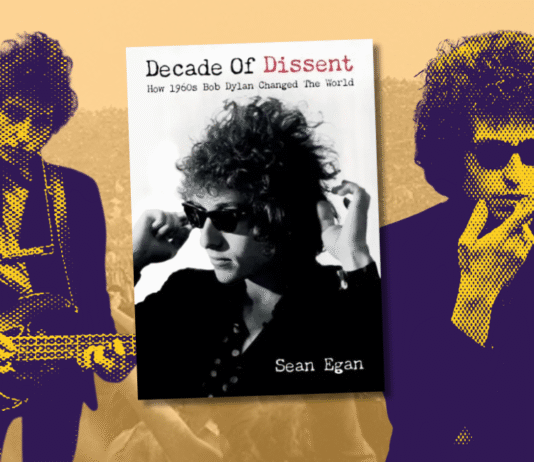Imagine If Gatsby Snapped and Started Killing People
There’s a reason Patricia Highsmith’s The Talented Mr Ripley has become a canonical read for anyone who enjoys their fiction shaken with a twist of psychological dread and a strong pour of moral ambiguity. Published in 1955, it’s a tale that answers the eternal question: “What if you could fake being someone else so convincingly, even you started believing it while also casually murdering your way to a better lifestyle?”
Meet Tom Ripley: anxious, self-loathing, broke, and yet somehow more dangerous than a bottle of bleach in a baby’s crib. Tom isn’t just an unreliable narrator, he’s the literary equivalent of that charming guy at a party who tells great stories, disappears for a smoke break, and then you later find out he was quietly stealing everyone’s wallets.
Table of Contents
The Setup: Go to Italy, Befriend a Rich Idiot, Steal His Life
It starts innocently enough. Some rich shipping magnate (the kind who names yachts things like Indiscretion II) hires Tom to travel to Italy and convince his son Dickie Greenleaf to come home. Tom, being a drifter whose career up to this point involves lightly committing fraud and sweating profusely in men’s bathrooms, leaps at the opportunity.

What follows is a Mediterranean descent into madness, envy, and boat oars being used for less-than-noble purposes. Tom becomes obsessed with Dickie’s lifestyle, the cash, the charm, the unbearable smugness of being. Then, as if Highsmith were holding your moral compass over an open flame, Tom murders Dickie, steals his identity, and proceeds to swan around Europe living the dream while occasionally looking over his shoulder for the police or a guilt-induced ulcer.
Spoiler: he never gets caught. The man is slipperier than a bar of soap in a prison shower.
Why We (Sort Of) Like This Monster
Here’s the twisted genius of Highsmith: she makes you root for Ripley. Yes, he lies. Yes, he murders. Yes, he impersonates his dead friend and writes forged letters like a sociopathic pen pal. But he’s also insecure, painfully human, and oddly sympathetic, like a stray dog that occasionally bites children.
Tom’s real crime, if we’re being honest, is ambition without a conscience. He’s the American Dream in loafers and a nice blazer, pull yourself up by your bootstraps, even if those bootstraps were ripped off a corpse. He’s what you’d get if Jay Gatsby had given up on Daisy and decided to build his fortune through identity theft and casual homicide.
Highsmith’s Writing: Calm, Clean and Deeply Unsettling
Patricia Highsmith doesn’t write horror. She writes horror’s emotionally distant cousin—psychological thrillers that chill your spine because they’re plausible. Her prose is minimalist, crisp, and as dry as a banker’s handshake. There’s no melodrama. No over-the-top evil laughter. Just calm descriptions of a man calmly considering whether or not to kill you because you’ve asked too many questions.
Highsmith had no interest in moral lessons. She just wanted to sit you down and introduce you to the sort of person who thinks, “Maybe if I kill this guy, my problems will go away,” and then… actually does it.
Adaptations: From Silver Screen to Streaming Screams
It’s no wonder filmmakers couldn’t resist Ripley’s homicidal charm. The book has been adapted multiple times, and each version offers its own twisted flavour of Mediterranean mayhem.
- Purple Noon (1960): French, moody, and starring Alain Delon as the most photogenic murderer you’ll ever see. It’s atmospheric and stylish, although it wimps out at the end with a less morally ambiguous conclusion.
- The Talented Mr Ripley (1999): Anthony Minghella took a crack at it and gave us Matt Damon in a rare role where he doesn’t play a genius janitor or a very confused amnesiac. This version nails the creeping dread and gives us Jude Law as Dickie-smug, tan, and practically begging to be murdered for his wardrobe alone. The film looks like a postcard from hell, and it’s perfect.
- Ripley (2024): Netflix, never one to pass up the opportunity to mine dark psychology for bingeable content, gave us Andrew Scott as Ripley in eight beautifully bleak episodes. Shot in black and white like an art student’s thesis on despair, this version leans even harder into the soulless elegance of Ripley’s world. It’s stylish, it’s slow, and it’s possibly the best version yet assuming you enjoy your existential dread accompanied by antique furniture and zero colour grading.
Why Ripley Endures (Spoiler: We’re All a Bit Broken)
There’s a reason Tom Ripley still resonates in the era of social media influencers and curated fake personas. He’s the ultimate con artist—but unlike today’s #VanLife frauds, he doesn’t just pretend to have a better life. He actually kills people and takes theirs.
Ripley is compelling because he reflects something deeply uncomfortable about ourselves. The desire to be more, to be seen, to be envied. He’s capitalism with a knife. A walking, talking middle finger to the idea that nice guys finish first.
He’s also weirdly relatable. Who hasn’t at some point felt like an imposter? The difference is, when you mess up at your job, you get written up. When Tom messes up, someone ends up floating face-down in a Venetian canal.
Final Thoughts: Read It, Be Disturbed, Question Everything
The Talented Mr Ripley isn’t just a thriller. It’s a slow-burning, psychological autopsy of envy and identity. It seduces you, then slaps you across the face with your own moral flexibility. Highsmith doesn’t ask whether murder is wrong. She asks whether you might quietly cheer for someone doing it well.
If you’re tired of squeaky-clean heroes and justice served on a silver platter, Ripley is your man. He’ll steal your name, your boat, and probably your girlfriend. And you’ll still want to buy him a drink.

The Talented Mr Ripley
'The No.1 Greatest Crime Writer' The Times
'Ripley, amoral, hedonistic and charming, is a genuinely original creation' Daily Telegraph
Tom Ripley is struggling to stay one step ahead of his creditors and the law, when an unexpected acquaintance offers him a free trip to Europe and a chance to start over.
Ripley wants money, success and the good life and he's willing to kill for it. When his new-found happiness is threatened, his response is as swift as it is shocking.
**One of the BBC's 100 Novels That Shaped Our World**















